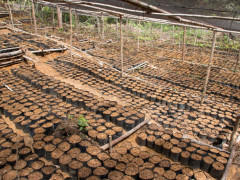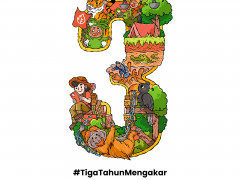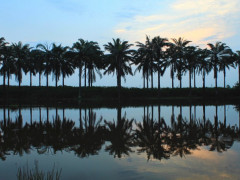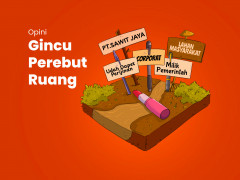Community Involvement Is Key to the Success of Peat Restoration
By Admin Pantau GambutWomen in This Village Protect Peatlands by Growing Shallots
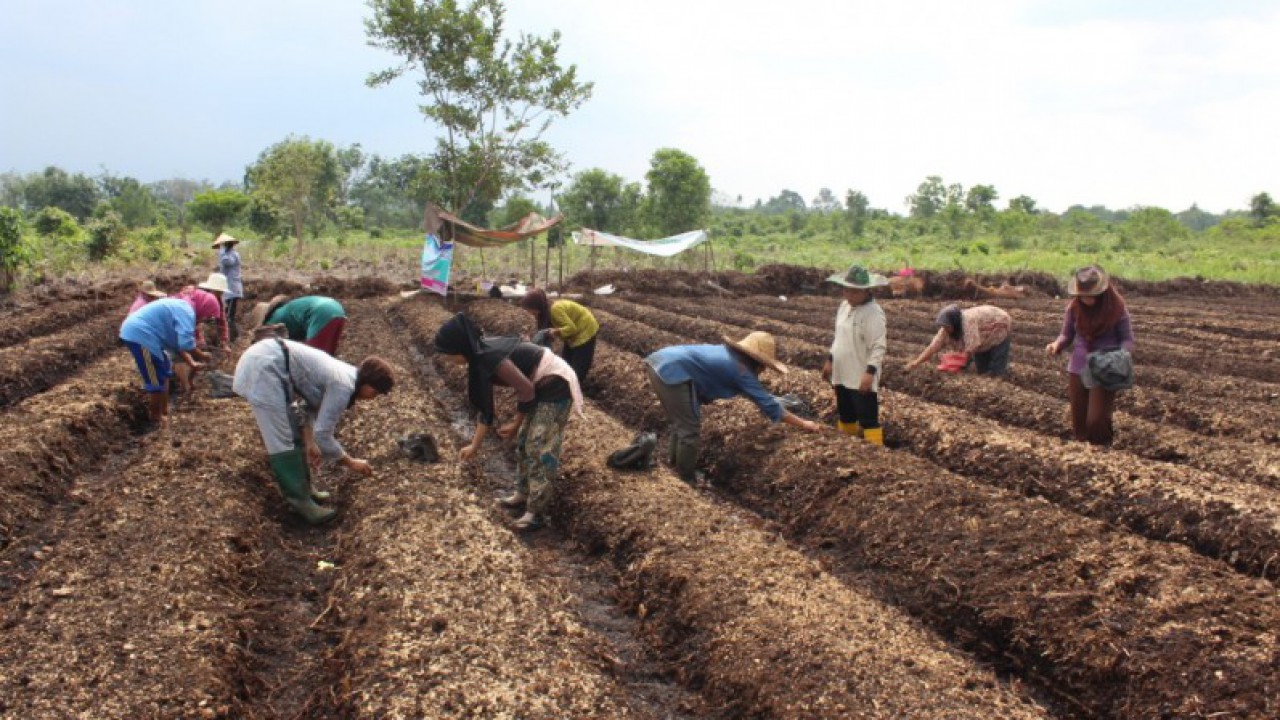
The land-based forest fire mitigation program introduced by the Riau Women Working Group (RWWG), an NGO based in Pekanbaru, Riau, builds community awareness to develop a commodity-based local economy, capitalizing on the local biodiversity and native peat plants. The residents are given the knowledge and expertise on how to use peatlands to increase their income without burning them.
During the rainy season, Diana (31) and 19 women in Parit I/II Village and Sungai Kayu Ara Village, Siak District, Riau were filled with anxiety. Heavy rains flushed their villages in early November and soaked the shallot crops belonging to the women's farmer group.
But the water didn't stay long. It soon subsided after village officials and local residents worked together to clear the clogged ditches. Watching the shallot seedlings that began to thrive submerged in the water made Diana and her friends cry. Diana is the group leader.
“We just planted the shallots for the first time in Sungai Apit Subdistrict. If they don't get flooded, shallots will grow well when planted on peatland. The water came from the overflowing ditches,” said Diana when we contacted her from Pekanbaru.
Diana is the head of the women's group in Parit I/II Village. There is another women's group in Sungai Kayu Ara Village. These two groups’ shallot farms are part of the land-based forest fire mitigation program introduced by the Riau Women Working Group (RWWG), an NGO from Pekanbaru. This program encourages public awareness to develop a commodity-based local economy, capitalizing on the local biodiversity and native peat plants.
Diana, who works in the Savings and Loans Unit of Sungai Kayu Ara Village, said that through this program, they were given the knowledge and expertise on how to use peatlands to increase their income without burning them.
“Yes, it increases the housewives’ income. There are extension workers who train us so the local people know how to cultivate shallots on peatland,” she explained.
The housewives were also taught technical expertise to fertilize seedlings. If this program goes well, the harvest will be used as seeds again so that this program can be sustainable after there is no more assistance from the institution. If there is no obstacle and the weather is favorable, the farmers can harvest the crops on less than 1 hectare of land at the end of December or early January 2019.
"We plan to make more seeds and cultivate the neighboring land by elevating the furrow. This is what we learned from the last flood,” added Diana.
She said that peatlands are very suitable to grow shallots. The seeds they received were not only planted on the group's land but are also on polybags and people's yards.
"These shallots grow very well on people's yards. So, shallots are very suitable to be grown on peatlands. This makes us happy," she said.
Separately, Rina Syahputri, a facilitator from RWWG said the two villages are located in one landscape in the peat forest on the Kampar Peninsula. The 700-hectare of peatland is now vulnerable to fire due to drainage carried out by some parties, including plantation companies and oil palm farmers.
“Apart from shallots cultivated by the women's groups, RWWG has another program, which is peat wetting. We make drilling wells and canal blocks in the two villages,” said Rina.
With the agroforestry demonstration plot of the shallots, women are indirectly involved in supervising and cultivating the land so as to avoid the risk of land fires.
“The land for the shallot farm was also burned. Now the vulnerable land is cultivated by using environmentally friendly methods and without burning,” she added. (*)
